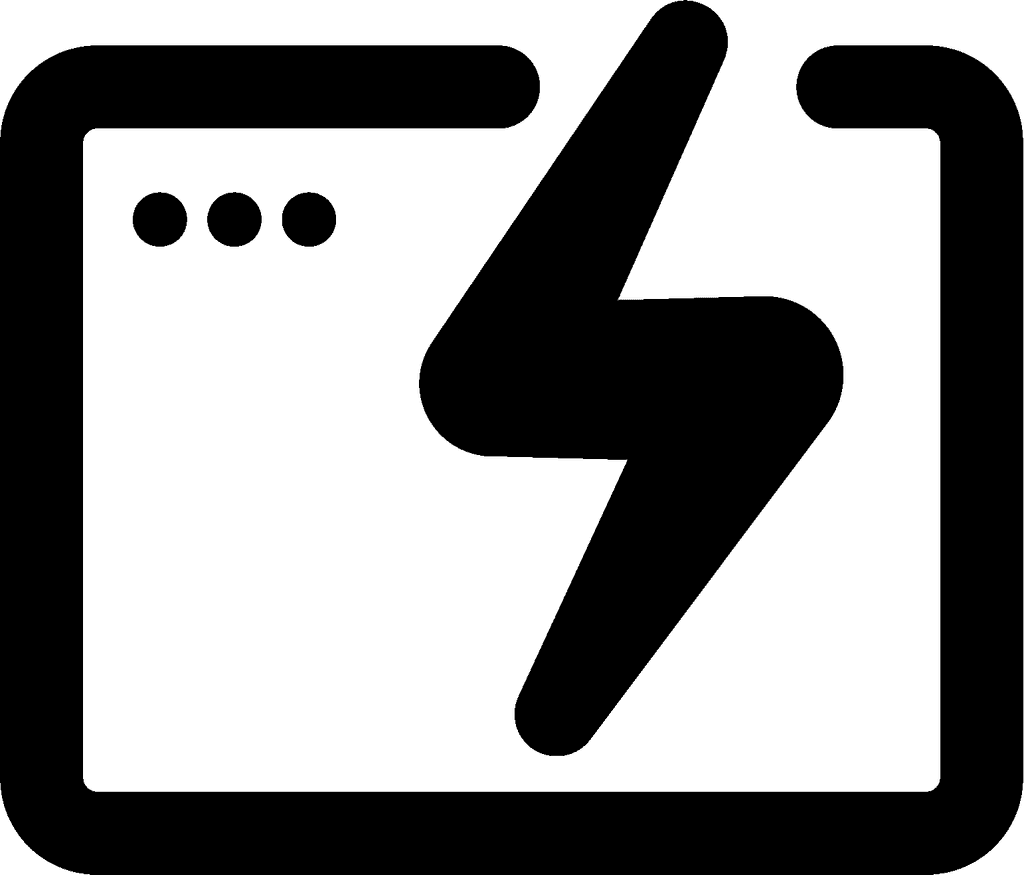Next-Generation AI ITSM: Revolutionizing IT Service Management
Next generation AI ITSM is transforming how organizations manage their IT services and infrastructure. By leveraging advanced artificial intelligence and machine learning capabilities, these systems can automate complex tasks, predict issues before they occur, and provide more personalized support to end users. AI-powered ITSM solutions are enabling IT teams to dramatically improve efficiency, reduce costs, and enhance the overall quality of service delivery.
These innovative platforms utilize natural language processing to interpret user requests and automatically route them to the appropriate resources. They can also analyze vast amounts of data to identify patterns and anomalies, allowing for proactive problem resolution and optimized resource allocation. Additionally, AI assistants are available 24/7 to handle common inquiries and troubleshoot basic issues, freeing up human agents to focus on more complex matters.
As AI continues to evolve, next-gen ITSM systems will become even more intelligent and autonomous. They will be able to self-heal infrastructure problems, dynamically adjust to changing business needs, and provide increasingly accurate predictions about future IT requirements. This shift represents a major leap forward in IT service management, promising to revolutionize how businesses support their technology ecosystems.

Foundations of Next Generation AI in ITSM
Artificial intelligence is transforming IT service management through advanced capabilities like generative AI, machine learning, and predictive analytics. These technologies enable more proactive and efficient IT operations.
Evolution of AI in IT Service Management
AI has significantly impacted ITSM over the past decade. Early applications focused on automating basic tasks and providing simple chatbots. More recently, AI has enabled intelligent ticket routing, predictive maintenance, and natural language processing for improved service desk interactions.
Machine learning algorithms now analyze vast amounts of historical ITSM data. This allows IT teams to identify patterns and predict future incidents. AIOps platforms leverage this capability to provide real-time insights and automate complex workflows.
Predictive analytics helps organizations move from reactive to proactive IT management. By forecasting potential issues, teams can address problems before they impact end users.
Defining Generative AI and its Role in ITSM
Generative AI represents a major leap forward for ITSM. These systems can create new content, code, and solutions based on large datasets and prompts.
In ITSM, generative AI assists with:
Automated ticket responses
Creating knowledge base articles
Generating custom scripts and workflows
Producing detailed incident reports
This technology enhances service desk efficiency by providing rapid, accurate responses to common issues. It also empowers IT staff to focus on more complex, high-value tasks.
Understanding AI-Driven ITSM Processes
AI-driven ITSM processes leverage machine learning and advanced analytics to streamline operations. Key applications include:
Intelligent incident classification and routing
Automated problem detection and root cause analysis
Predictive maintenance scheduling
Dynamic resource allocation
These AI-powered processes reduce mean time to resolution (MTTR) and improve overall service quality. They also enable more efficient use of IT resources by prioritizing tasks based on business impact.
AI enhances decision-making by providing data-driven insights to IT leaders. This allows for more strategic planning and optimization of ITSM practices.
Optimizing Workflows and Automation
AI-powered ITSM solutions revolutionize IT operations by streamlining processes and enhancing efficiency. These systems leverage machine learning and advanced analytics to automate tasks, improve resource allocation, and optimize performance across IT service delivery.
Implementing Intelligent Automation
Intelligent automation combines AI and robotic process automation to handle complex IT tasks. It uses machine learning algorithms to analyze patterns and make decisions, reducing manual intervention.
AI-driven systems can automatically categorize and route tickets, prioritize tasks, and suggest solutions based on historical data. This speeds up resolution times and improves first-contact resolution rates.
Chatbots and virtual assistants powered by natural language processing provide 24/7 support, answering common queries and guiding users through troubleshooting steps.
Enhancing IT Workflows with AI
AI enhances IT workflows by identifying bottlenecks and inefficiencies. Machine learning models analyze historical data to predict potential issues and recommend process improvements.
Predictive analytics help IT teams proactively address problems before they impact users. This reduces downtime and improves service quality.
AI-powered resource allocation tools optimize staff schedules and workloads. They consider factors like skill sets, availability, and task complexity to assign the right resources to each ticket.
Role of AI in Service Orchestration
AI plays a crucial role in service orchestration by coordinating complex, multi-step processes across different systems and teams.
Machine learning algorithms analyze dependencies between services and automatically adjust workflows to optimize performance. This ensures smooth operations and reduces the risk of service disruptions.
AI-driven orchestration tools can automatically scale resources based on demand, optimizing infrastructure utilization and cost-efficiency.
These systems also provide real-time insights into service performance, enabling IT teams to make data-driven decisions and continuously improve service delivery.
Enhancing User Experience and Engagement
Next-generation AI ITSM solutions focus on creating seamless, personalized experiences for users. These innovations aim to streamline interactions, provide intuitive support, and boost overall satisfaction.
Incorporating Chatbots and Virtual Assistants
AI-driven chatbots and virtual assistants play a crucial role in modern ITSM platforms. These tools provide 24/7 support, answering common queries and guiding users through basic troubleshooting steps. Natural language processing enables them to understand user intent and respond accurately.
Chatbots can handle tasks like password resets, software installations, and basic system diagnostics. This reduces the workload on human IT staff, allowing them to focus on more complex issues.
Virtual assistants often integrate with knowledge bases, quickly retrieving relevant information for users. They can also escalate issues to human agents when necessary, ensuring a smooth handoff of context and details.
Personalized Employee Experience
AI-powered ITSM systems can tailor interactions based on individual user profiles and preferences. This personalization extends to language settings, interface customization, and content recommendations.
Machine learning algorithms analyze user behavior patterns to predict common issues and proactively offer solutions. This approach minimizes downtime and increases productivity.
Personalized dashboards display relevant metrics, pending tasks, and system health information. Users can access self-service options tailored to their roles and frequently used applications.
AI systems can also suggest training resources based on an employee's skill gaps or emerging technologies relevant to their position.
AI Assist for User Onboarding and Support
AI streamlines the onboarding process for new employees by automating device provisioning, software installations, and account setups. Intelligent workflows guide users through initial configurations and introduce them to relevant IT resources.
AI-powered knowledge bases continuously update with new information, ensuring users always have access to the latest solutions. These systems can recommend relevant articles based on user queries or current system states.
Predictive analytics help identify potential issues before they impact users, enabling proactive maintenance and updates. This approach reduces system downtime and improves overall user satisfaction.
AI assistants can guide users through complex procedures, offering step-by-step instructions and visual aids when needed. This empowers employees to solve many issues independently, fostering a culture of self-service and continuous learning.
Advancing Proactivity and Predictive Capabilities
Next-generation AI ITSM systems leverage advanced analytics and machine learning to anticipate and prevent issues before they impact operations. These capabilities enable organizations to shift from reactive to proactive IT management.
Predictive Maintenance and Incident Prevention
AI-powered ITSM solutions analyze historical data and real-time metrics to forecast potential system failures. This allows IT teams to schedule maintenance before problems occur, reducing downtime and service disruptions.
Machine learning algorithms identify patterns and anomalies in system behavior, triggering alerts for potential issues. These early warnings enable technicians to address problems proactively, often before users even notice an impact.
Automated health checks and self-healing processes further enhance system reliability. AI agents can perform routine maintenance tasks and apply patches without human intervention, freeing up IT staff for more complex tasks.
Utilizing Predictive Analytics in Problem Management
Predictive analytics tools in ITSM platforms help identify recurring issues and their root causes. By analyzing incident data, these systems can spot trends and correlations that human analysts might miss.
AI-driven problem management solutions prioritize issues based on their potential impact and likelihood of occurrence. This allows IT teams to focus their efforts on the most critical problems first.
These systems also suggest potential solutions based on past resolutions, accelerating the problem-solving process. As the AI learns from each incident, its recommendations become increasingly accurate and valuable.
Real-Time Guidance and Recommendations
AI assistants integrated into ITSM platforms provide real-time guidance to IT staff during incident response. These tools offer step-by-step instructions and best practices tailored to the specific situation.
Natural language processing enables these AI assistants to understand and respond to queries from technicians, providing instant access to relevant knowledge bases and documentation.
Automated impact analysis helps IT teams understand the potential consequences of their actions before implementing changes. This reduces the risk of unintended disruptions and improves overall service quality.
Integrations and Compliance in AI-Enhanced ITSM
AI-powered ITSM systems require seamless integrations and robust compliance measures to deliver maximum value. These elements ensure smooth workflows and protect sensitive data.
Leveraging Integrations with Business Applications
AI-enhanced ITSM platforms integrate with essential business tools to streamline operations. Microsoft Teams integration enables real-time collaboration and ticket management within the familiar chat interface. Employees can create and track issues without switching contexts.
ServiceNow and BMC Helix offer extensive integration capabilities. These platforms connect with HR systems, asset management tools, and customer relationship management (CRM) software. This connectivity allows for automated ticket routing and prioritization based on user roles and business impact.
AI-driven chatbots can access knowledge bases across integrated systems. This empowers them to provide more accurate and context-aware responses to user inquiries.
Maintaining Compliance and Governance with AI
AI in ITSM introduces new compliance considerations. Organizations must implement strict access permissions to protect sensitive data used in AI training and decision-making processes.
GDPR and HIPAA compliance require careful handling of personal information. AI systems must be designed with data minimization and purpose limitation principles in mind.
Regular audits of AI algorithms are necessary to ensure fairness and prevent bias. Organizations should maintain clear documentation of AI decision-making processes for transparency and accountability.
Automated compliance checks can be implemented to scan tickets and resolutions for potential policy violations. This helps maintain consistent adherence to industry regulations and internal governance standards.
Frequently Asked Questions
AI is revolutionizing IT Service Management through advanced automation, predictive analytics, and enhanced user experiences. These innovations are reshaping how organizations approach IT support and service delivery.
What are the use cases for AI in IT Service Management (ITSM)?
AI in ITSM enables intelligent ticket routing and prioritization. It analyzes patterns to predict and prevent IT issues before they occur.
Chatbots powered by AI provide 24/7 support, resolving common user queries instantly. AI also assists in knowledge management, continuously updating and improving the IT knowledge base.
How is AI transforming traditional ITSM platforms?
AI enhances ITSM platforms with natural language processing for better user interactions. It introduces predictive analytics for proactive problem-solving and resource allocation.
Machine learning algorithms improve incident classification and resolution times. AI-driven automation streamlines routine tasks, allowing IT staff to focus on complex issues.
What features differentiate next-generation AI ITSM solutions from traditional ITSM software?
Next-gen AI ITSM solutions offer advanced anomaly detection and root cause analysis. They provide personalized user experiences through AI-driven interfaces.
These solutions incorporate self-healing capabilities, automatically resolving certain issues without human intervention. They also offer predictive insights for capacity planning and service optimization.
How does AI contribute to the automation of ITSM processes?
AI automates ticket categorization and assignment based on historical data. It enables intelligent workflow routing, ensuring issues reach the right teams quickly.
Robotic Process Automation (RPA) combined with AI handles repetitive tasks efficiently. AI also facilitates automated service catalog updates and change management processes.
What are the benefits of integrating AI into ITSM for enterprises?
AI integration in ITSM reduces mean time to resolution (MTTR) for IT incidents. It improves service quality and consistency through standardized AI-driven processes.
Enterprises benefit from cost savings due to increased efficiency and automation. AI also enhances decision-making with data-driven insights and predictive analytics.
What certifications are available for professionals in AI-enhanced ITSM?
ITIL 4 certification now includes AI and automation components relevant to modern ITSM. The AI Service Management (AISM) certification focuses specifically on AI in ITSM contexts.
Some vendors offer specialized certifications for their AI-enhanced ITSM platforms. Professional organizations also provide courses on integrating AI technologies into IT service management practices.

Build a more powerful help desk with Risotto
Minimize Tickets and Maximize Efficiency
Simplify IAM and Strengthen Security
Transform Slack into a help desk for every department
Schedule your free demo



